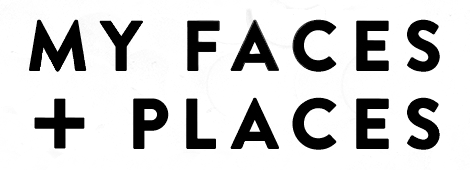Chinese New Year Celebrations in London

Chinese New Year Greetings Card
The Chinese New Year celebrations are once upon us again. 2016 is the year of the fire Monkey. This is the first of 2 travel articles on the Chinese New Year Celebrations. This post is in London and the second one in Kuala Lumpur, Malaysia.

China Town decorations: The new Gate in Wardour Street complements the existing 3 gates embracing China Town which were erected in 1986. Sections of this Wardour Street Gate were designed and fabricated in China.
The Preparations
The Chinese New Year marks the beginning of the Spring Season which is the “start” season for the year. The Chinese New Year celebration is a time for family reunion and festivities.
There are however, a number of rituals that are carried out first.
Firstly, there is a clear out of the old energy. This involves the thorough cleaning of the house, cars, settling of debts and any issues with any person or group. All the faults in the house and appliances are rectified. Chinese New Year starts with a clean slate.
Men visit the barbers and the ladies go the hairdressers and the beauty salon. Most importantly, a new set of clothes is prepared. Chinese New Year cards were once sent through the post but now it is through the internet by email – this could be in images or in videos.

An Image of Chinese New Year image from an email (This image and the feature image are courtesy of Myra French in Singapore). Gong Xi Fa Cai – translates to “May your Fortune Grow”.
Or as a video clip.
A week before the Chinese New Year’s day, a delicacy of a sticky sweet cake – tee kway (made from glutinous rice flour and sugar) is presented to the Kitchen God. It is sweet and sticky so that the kitchen god will make a good report of the household to Heaven.
It can be decorated with oranges. But why oranges? – The Chinese word for orange “kum” puns with gold. The appearance of the orange colour symbolises “Gold”. Hence the auspicious meaning to bring good luck and wealth. Visitors and hosts exchange oranges during this festive period.

A Tee Kway cake decorated with oranges.
Chinese New Year’s Day
It is a day of rest with Peace and Harmony in the house. In Singapore where I was brought up, it is a public holiday. Families would go visiting or have an “open house” for visitors. When you were the “elder”, you would be the one receiving visitors.

The red packet with the word “fook” or prosperity.
Children and unmarried persons are given the “ang piow” or red packet. These red packets contain money – at least 2 items, one of paper and a coin. The amount depends very much on the circumstances. It can vary – a sizeable amount or a nominal amount.
Dinners are central to the Chinese New Year celebrations.
This year, we had 2 celebration dinners. The most important celebration is on the Chinese New Year’s eve.
The 1st dinner – A small gathering at a friend’s home.

The spread of dishes for the Chinese New Year Celebrations for the family and friends.
The Dishes.
Steam boat and teppenyaki grill (the centre piece on the table).
The steam boat is to cook the various ingredients (beef, chicken, pork, vegetables, fish and meat balls, mushrooms, eggs) in the soup stock.
The teppanyaki grill in the centre is for the thinly sliced meat.
Noodles symbolise long life.
The 2nd Dinner was at Selesa Restaurant in Park City Hotel Kensington in London.

Yee Shang – before the Toss

Yee Shang – After the Toss
Yee Shang (Prosperity Toss) – An appetizer and a symbol of good luck or prosperity. Yee Shang has become an important and essential component of the dinner in the London Chinese New Year Celebrations in recent years.
Yee Shang consists of a raw fish salad mixed with shredded vegetables with a variety of sauces and condiments.
All the diners at the table stand up and proceed to toss the shredded ingredients into the air with chopsticks while saying ”lo hei” or “auspicious wishes”. It is believed that the height of the toss reflects the height of the diner’s growth in fortune.

The feast of the Chinese New Year Celebrations with the Main Course of – Steamed fish, stir fried vegetables with scallops. tou foo with crab sauce, chilied king prawns, stir fried vegetables, fried chicken, braised lamb, abalone with braised chinese mushrooms.
The London Chinese New Year Celebration in China Town and Trafalgar Square on Sunday 14th February 2016
The area between China Town and Trafalgar Square was the centre of the Chinese New Year Celebrations. The roads were traffic free which allowed visitors to mingle freely in this area which was festooned with lanterns and other Chinese New Year decorations. Red was the predominant colour.
The whole area was a sea of people trying to move from one place to another. However, crowds built up when the lion dance performed in front of the various restaurants or shops. The whole place was a visual and aural feast. Restaurants had queues with waiting times of about 2 hours.

Crowds in Gerrard Street – the main street of China Town.
Trafalgar Square was the heart of the Chinese New Year Celebrations. The performances were the celebration of Chinese Arts and Culture. The theme was the Year of the Monkey with performing artists from China –
- Beijing Young Cultural Ambassadors
- Opera company from Chuanju Theatre (Chongqing, SiChuan area.)

The crowds in Trafalgar Square watching the performances on the stage in celebration of the year of the Monkey.
There were 2 subsidiary stages for local performers.

Actors from local youth group were telling the story of how the 12 zodiac animals were selected. The cat, who was promised by the Emperor to lead the zodiac animals, had fallen asleep at the appointed hour. Instead, the rat was chosen to be the 1st zodiac animal in its place. The cat was very angry and became jealous of this selection. Since then, the rat and the cat have been mutual enemies.

Three Ladies in their traditional Chinese costumes coming for the Chinese New Year Celebrations in London.
London has really opened up by embracing the festivals of the different cultures. The authorities have allowed the use of the iconic Trafalgar Square for these celebrations. This effort has been credited to the Mayor of London – Boris Johnson. Well Done Boris.
Footnote:
How is Chinese New Year’s Day selected?
The date of the Chinese New year’s day is different from the Solar New year which is 1st January. The Chinese New Year is based on the lunar calendar.
The construction of Chinese calendar is based in the 4 seasons with each season having 3 months. – Spring (Start), Summer (Growth), Autumn or Fall (Harvest) and Winter (Rest or Regeneration). The other name used for this day is Spring Festival. It is the most important traditional Chinese festival of the year.
The start of the Chinese New Year is on a day with a new moon at the start of the new solar calendar year. Hence, the date can vary between early January to late February. The New Year Celebrations lasts for 15 days. On the last day will have the full moon where there are further celebrations and the Chinese equivalent of St Valentine’s Day. This is commonly known as “Chap Goh Mei”. This day is the 1st full moon of the New Year. Lantern Festivals are celebrated by the Chinese around the world. This day is also the Chinese equivalent of St Valentine’s Day where unattached ladies would go to the bridge and drop oranges into the flowing river. Men would collect these oranges further down the river. It is said that they would take a chance in contacting the lady based on the “sweetness” of the orange. The activities of this day include fireworks, stage shows, dinners and other celebrations.
All rights reserved © 2015-2016 MyFacesAndPlaces.co.uk
For the latest information on the Chinese New Year Celebrations in London 2017 .
The celebration of Food from East Asia is the Golden Chopsticks Awards



